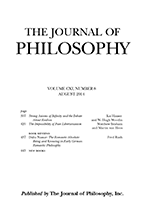
Dharma is a key concept with multiple meanings in the Indian religions of Hinduism, Buddhism, Jainism, and Sikhism, among others. Although no single-word translation exists for dharma in English, the term is commonly understood as referring to "order and custom" that sustain life, "virtue", or "religious and moral duties".

The world is the totality of entities, the whole of reality, or everything that is. The nature of the world has been conceptualized differently in different fields. Some conceptions see the world as unique while others talk of a "plurality of worlds". Some treat the world as one simple object while others analyze the world as a complex made up of parts. In scientific cosmology the world or universe is commonly defined as "[t]he totality of all space and time; all that is, has been, and will be". Theories of modality talk of possible worlds as complete and consistent ways how things could have been. Phenomenology, starting from the horizon of co-given objects present in the periphery of every experience, defines the world as the biggest horizon or the "horizon of all horizons". In philosophy of mind, the world is contrasted with the mind as that which is represented by the mind. Theology conceptualizes the world in relation to God, for example, as God's creation, as identical to God or as the two being interdependent. In religions, there is a tendency to downgrade the material or sensory world in favor of a spiritual world to be sought through religious practice. A comprehensive representation of the world and our place in it, as is found in religions, is known as a worldview. Cosmogony is the field that studies the origin or creation of the world while eschatology refers to the science or doctrine of the last things or of the end of the world.

Ubuntu is a Nguni Bantu term meaning "humanity". It's sometimes translated as "I am because we are", or "humanity towards others". In Xhosa, the latter term is used, but is often meant in a more philosophical sense to mean "the belief in a universal bond of sharing that connects all humanity".
Empirical evidence for a proposition is evidence, i.e. what supports or counters this proposition, that is constituted by or accessible to sense experience or experimental procedure. Empirical evidence is of central importance to the sciences and plays a role in various other fields, like epistemology and law.
David Sztybel is a Canadian philosopher specializing in animal ethics.

Early modern philosophy The early modern era of philosophy was a progressive movement of Western thought, exploring through theories and discourse such topics as mind and matter, is a period in the history of philosophy that overlaps with the beginning of the period known as modern philosophy. It succeeded in the medieval era of philosophy. Early modern philosophy is usually thought to have occurred between the 16th and 18th centuries, though some philosophers and historians may put this period slightly earlier. During this time, influential philosophers included Descartes, Locke, Hume, and Kant, all of whom contributed to the current understanding of philosophy.

Contemporary philosophy is the present period in the history of Western philosophy beginning at the early 20th century with the increasing professionalization of the discipline and the rise of analytic and continental philosophy.

Philosophy and economics studies topics such as public economics, behavioural economics, rationality, justice, history of economic thought, rational choice, the appraisal of economic outcomes, institutions and processes, the status of highly idealized economic models, the ontology of economic phenomena and the possibilities of acquiring knowledge of them.
Iranian philosophy or Persian philosophy can be traced back as far as to Old Iranian philosophical traditions and thoughts which originated in ancient Indo-Iranian roots and were considerably influenced by Zarathustra's teachings. According to the Oxford Dictionary of Philosophy, the chronology of the subject and science of philosophy starts with the Indo-Iranians, dating this event to 1500 BC. The Oxford dictionary also states, "Zarathustra's philosophy entered to influence Western tradition through Judaism, and therefore on Middle Platonism."
The Navya-Nyāya or Neo-Logicaldarśana of Indian logic and Indian philosophy was founded in the 13th century CE by the philosopher Gangeśa Upādhyāya of Mithila and continued by Raghunatha Siromani of Nabadwipa in Bengal. It was a development of the classical Nyāya darśana. Other influences on Navya-Nyāya were the work of earlier philosophers Vācaspati Miśra and Udayana. It remained active in India through to the 18th century.

The Journal of Philosophy is a monthly peer-reviewed academic journal on philosophy, founded in 1904 at Columbia University. Its stated purpose is "To publish philosophical articles of current interest and encourage the interchange of ideas, especially the exploration of the borderline between philosophy and other disciplines." Subscriptions and online access are managed by the Philosophy Documentation Center.
Philosophy of geography is the subfield of philosophy which deals with epistemological, metaphysical, and axiological issues in geography, with geographic methodology in general, and with more broadly related issues such as the perception and representation of space and place.

Philosophy is a systematic study of general and fundamental questions concerning topics like existence, reason, knowledge, value, mind, and language. It is a rational and critical inquiry that reflects on its own methods and assumptions.
Buddhist studies, also known as Buddhology, is the academic study of Buddhism. The term Buddhology was coined in the early 20th century by the Unitarian minister Joseph Estlin Carpenter to mean the "study of Buddhahood, the nature of the Buddha, and doctrines of a Buddha", but the terms Buddhology and Buddhist studies are generally synonymous in the contemporary context. According to William M. Johnston, in some specific contexts, Buddhology may be viewed as a subset of Buddhist studies, with a focus on Buddhist hermeneutics, exegesis, ontology and Buddha's attributes. Scholars of Buddhist studies focus on the history, culture, archaeology, arts, philology, anthropology, sociology, theology, philosophy, practices, interreligious comparative studies and other subjects related to Buddhism.

The Philosophy Documentation Center (PDC) is a non-profit publisher and resource center that provides access to scholarly materials in applied ethics, classics, philosophy, religious studies, and related disciplines. It publishes academic journals, conference proceedings, anthologies, and online research databases, often in cooperation with scholarly and professional associations. It also provides membership management and electronic publishing services, and hosts electronic journals, series, and other publications from several countries.
Philosophy of sport is an area of philosophy that seeks to conceptually analyze issues of sport as human activity. These issues cover many areas, but fall primarily into five philosophical categories: metaphysics, ethics and moral philosophy, philosophy of law, political philosophy, and aesthetics. The philosophical perspective on sport originated in Ancient Greece, having experienced a revival in the latter part of the 20th century with the work of Paul Weiss and Howard Slusher.
The philosophy of medicine is a branch of philosophy that explores issues in theory, research, and practice within the field of health sciences. More specifically in topics of epistemology, metaphysics, and medical ethics, which overlaps with bioethics. Philosophy and medicine, both beginning with the ancient Greeks, have had a long history of overlapping ideas. It was not until the nineteenth century that the professionalization of the philosophy of medicine came to be. In the late twentieth century, debates among philosophers and physicians ensued of whether the philosophy of medicine should be considered a field of its own from either philosophy or medicine. A consensus has since been reached that it is in fact a distinct discipline with its set of separate problems and questions. In recent years there have been a variety of university courses, journals, books, textbooks and conferences dedicated to the philosophy of medicine.
Australian philosophy refers to the philosophical tradition of the people of Australia and of its citizens abroad. Academic philosophy has been mostly pursued in universities. It has been broadly in the tradition of Anglo-American analytic philosophy, but has also had representatives of a diverse range of other schools, such as idealism, Catholic neo-scholasticism, Marxism, and continental, feminist and Asian philosophy.

Middle Eastern philosophy includes the various philosophies of the Middle East regions, including the Fertile Crescent and Iran. Traditions include Ancient Egyptian philosophy, Babylonian philosophy, Christian philosophy, Jewish philosophy, Iranian/Persian philosophy, and Islamic philosophy.





